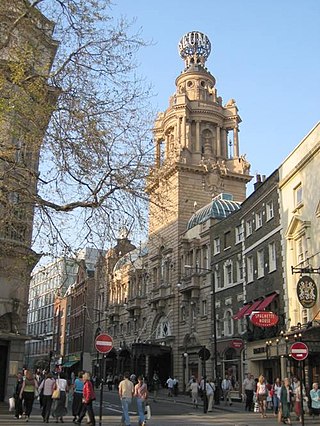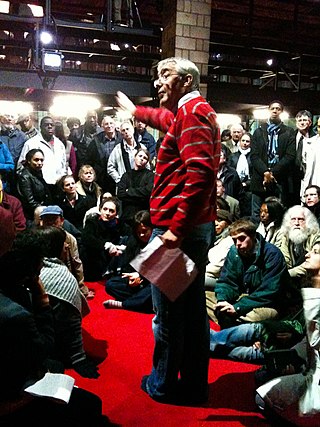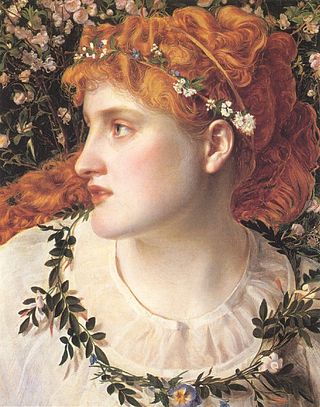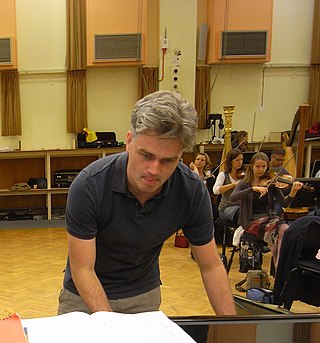Related Research Articles

The Winter's Tale is a play by William Shakespeare originally published in the First Folio of 1623. Although it was grouped among the comedies, many modern editors have relabelled the play as one of Shakespeare's late romances. Some critics consider it to be one of Shakespeare's "problem plays" because the first three acts are filled with intense psychological drama, while the last two acts are comic and supply a happy ending.

English National Opera (ENO) is a British opera company based in London, resident at the London Coliseum in St Martin's Lane. It is one of the two principal opera companies in London, along with The Royal Opera. ENO's productions are sung in English.

Birmingham Opera Company is a professional opera company based in Birmingham, England, that specialises in innovative and avant-garde productions of the operatic repertoire, often in unusual venues.
Paul Daniel is an English conductor.
A cup-bearer was historically an officer of high rank in royal courts, whose duty was to pour and serve the drinks at the royal table. On account of the constant fear of plots and intrigues, a person had to be regarded as thoroughly trustworthy to hold the position. He would guard against poison in the king's cup, and was sometimes required to swallow some of the drink before serving it. His confidential relations with the king often gave him a position of great influence. The position of cup-bearer has been greatly valued and given only to a select few throughout history.

Rory Michael Kinnear is an English actor. He won two Olivier Awards, both at the National Theatre, in 2008 for his portrayal of Sir Fopling Flutter in The Man of Mode, and for playing the William Shakespeare villain Iago in Othello in 2014.
Martyn Charles Brabbins is a British conductor.

Perdita is one of the heroines of William Shakespeare's play The Winter's Tale. She is the daughter of Leontes, King of Sicily, and his wife Hermione.

Edward Gardner is an English conductor. While still studying at the Royal Academy of Music in the late 1990s, he began his professional career as a choral conductor and repetiteur. Among other early posts, he was music director of Glyndebourne on Tour from 2004 to 2007. Gardner was music director of English National Opera from 2007 to 2015. From 2010 to 2016, he was principal guest conductor of the City of Birmingham Symphony Orchestra, and since 2013, he has been principal guest conductor of the Bergen Philharmonic Orchestra. Since 2021, he has been principal conductor of the London Philharmonic Orchestra. In 2022, he also became artistic advisor of the Norwegian National Opera and Ballet, where he is scheduled to become the music director in 2024.
Opera is a monthly British magazine devoted to covering all things related to opera. It contains reviews and articles about current opera productions internationally, as well as articles on opera recordings, opera singers, opera companies, opera directors, and opera books. The magazine also contains major features and analysis on individual operas and people associated with opera.
Ryan Wigglesworth is a British composer, conductor and pianist.
Surrey Opera is a semi-professional English opera company based in Croydon, providing opera in Surrey, Sussex and Kent. The company offers opportunity to emerging professional opera singers, providing the opportunity to work with professional directors, musicians, designers and the Surrey Opera Chorus. Alumni of Surrey Opera include known singers Peter Sidhom, Russell Smythe, Susan Gritton and David Soar. While opera forms the majority of its repertoire, the company also performs operettas, musicals and soirées.

Sophie Anna Magdalena Bevan is a British lyric soprano appearing in concerts, recitals, and opera.
Lost Highway is a 2003 opera adaptation of the 1997 David Lynch film of the same name, by Austrian composer Olga Neuwirth with the libretto by 2004 Nobel Prize-winner Elfriede Jelinek.
Two Boys is an opera in two acts by American composer Nico Muhly, with an English-language libretto by American playwright Craig Lucas. The opera's story is based on real events in Manchester, England, in 2001 as described in a 2005 Vanity Fair article titled "You Want Me 2 Kill Him?"
The Winter's Tale is a ballet in three acts choreographed by Christopher Wheeldon to a commissioned score by Joby Talbot. The ballet is based on the play of the same name by William Shakespeare. With scenery and costumes designed by Bob Crowley, lighting designed by Natasha Katz, and special stage effects designed by Daniel Brodie and Basil Twist, it was a co-production of the Royal Ballet and the National Ballet of Canada. It was first presented at the Royal Opera House, London, on 10 April 2014. The North American premiere occurred the following year.

The Winter's Tale is a 1910 American silent short drama produced by Thanhouser Company. The plot is an adaptation of The Winter's Tale by William Shakespeare and requires fore-knowledge of the plot in order to understand the condensed one reel work. The film focuses on the conflict arising from two Kings, one of Bohemia and one of Sicily, during a meeting. Queen Hermione enrages her jealous husband, Leontes, by entertaining Polixenes. Leontes decides to kill him with poison, but the plan is foiled by the courtier tasked with the assassination. For this, Leontes imprisons his wife. Hermione gives birth to a daughter and Leontes orders the baby to die out in the wilderness. Hermione is then brought before the court and apparently dies after interrogation. Fifteen years pass and Polixenes confronts and then secretly follows his son, appearing as he declares his intention to marry a shepherdess. The two lovers seek protection with Leontes, the King of Sicily. Mourning and repentant for his past actions, Leontes learns the shepherdess is his daughter and blesses the marriage of the lovers. The royal party goes to see a statue of the late queen Hermoine which is revealed to be alive. The cast includes Anna Rosemond, Frank H. Crane and Martin Faust, but the directorial and production credits for the film are unknown. The production was a success for the Thanhouser Company and the film was met with positive reception following its May 27, 1910 release. The film survives in the Library of Congress, but it is missing the final scene of the production. The surviving print suffers from significant deterioration.
Wintermärchen is an opera by Philippe Boesmans to a libretto by Luc Bondy and Marie-Louise Bischofberger after Shakespeare's The Winter's Tale. It was premiered on 10 December 1999 at La Monnaie in Brussels. The German premiere followed in 2001 at the Staatstheater Braunschweig.
Hamlet is an opera in two acts by Australian composer Brett Dean, with an English libretto by Matthew Jocelyn, which is based on Shakespeare's play of the same name. The libretto uses "as little as 20 per cent" of the play's text and also takes inspiration from the "first quarto" as it "offers a different view on certain moments".
A Feast in the Time of Plague is a 2020 opera by Alex Woolf to a libretto by David Pountney, loosely based on the "little tragedy" of the same name by Alexander Pushkin.
References
- Sources
- ENO (2017). The Winter's Tale: Programme.
- Notes
- ↑ ENO (2017), p. 4
- 1 2 Chanteau, Clara. The Winter’s Tale, ENO, London, review, The Independent online, 28 February 2017, retrieved 15 March 2017.
- ↑ ENO (2017), p. 6.
- ↑ "Power chords – TheTLS". www.the-tls.co.uk. Retrieved 2017-03-21.
- ↑ Christiansen, Rupert. The Winter's Tale, English National Opera, review, Daily Telegraph online 28 February 2017, retrieved 15 March 2017
- ↑ Maddocks, Fiona (2017-03-05). "The Winter's Tale; Pelléas et Mélisande – review". The Guardian. ISSN 0261-3077 . Retrieved 2017-03-21.
- ↑ Hall, George. The Winter’s Tale review at Coliseum, London – ‘an intelligent staging’, The Stage online 28 February 2017, retrieved 15 March 2017.
- ↑ Hartston, William (2017-03-01). "Review: The Winter's Tale, English National Opera". Express.co.uk. Retrieved 2017-03-21.
